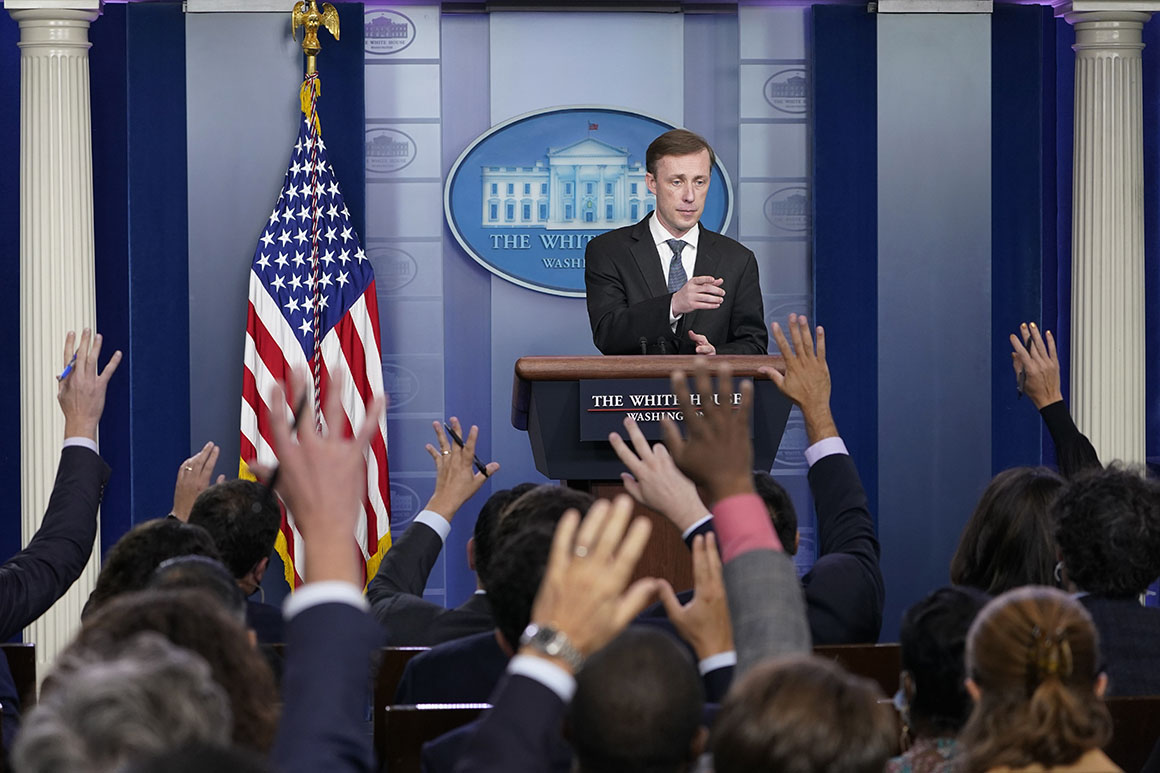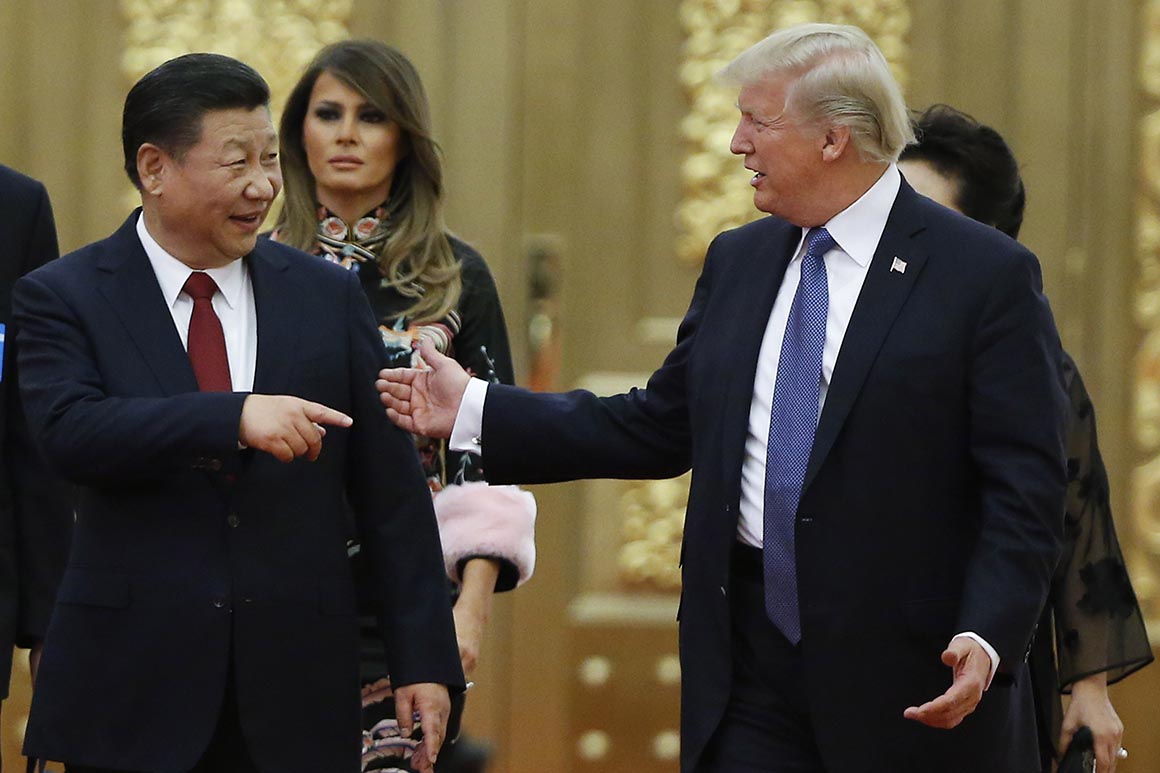
The fate of President Donald Trump’s trade war with China rests on a disagreement between top Biden officials.
National security adviser Jake Sullivan wants to announce steps toward raising tariffs on some key Chinese industries like steel and solar panels that receive the most support from Beijing — while scaling back penalties on thousands of other products, according to two people with knowledge of the discussions. But U.S. Trade Representative Katherine Tai wants to give China time to engage in trade talks first.
“There’s much that remains unresolved because they’re negotiating” on new tariff action, said Sen. Bob Casey (D-Penn.), who met with Tai this week on Capitol Hill with other members of the Senate Finance Committee.
The delay runs the risk of creating a deeper backlash against Democrats ahead of the midterms. Companies whose manufacturing costs rose because of the tariffs had expected Biden to roll back Trump’s trade wars. But Biden must also weigh those demands against his desire to appear tough on Beijing for an electorate that is increasingly anxious about China’s economic might, as well as the desires from his union supporters to preserve tariffs on key industries like steel.
“I have a lot of clients who were fed up with Trump and voted for a moderate, pro-business Biden,” said Brian Johnson, a principal at the Vogel Group, a corporate lobbying firm. “How much these policies dig into their bottom lines will affect their behavior.”
Trump’s trade legacy remains largely unchanged since Biden took office 10 months ago: Levies on $350 billion in Chinese goods are still in place. China also has failed to adhere to a deal it signed with Trump in early 2020 to buy $200 billion in U.S. farm products and other goods. Tai in an early October speech announced she’d restart talks on enforcing the trade deal and said the Biden administration doesn’t want to “inflame” tensions with China.

But Sullivan, one of the White House’s most aggressive China hawks, had pushed for announcement of additional moves toward higher tariffs on industries that Beijing is subsidizing during the administration's months-long review of Trump’s trade policies, the people with knowledge of negotiations said.
Tai was opposed to moving that quickly, arguing that it would poison the new talks with Beijing and that the Biden administration should not abandon America’s previous trade commitments, even those made under Trump, the people said. Under trade law, the U.S. is required to start talks with a targeted nation before taking steps to add new tariffs.
The White House says that Biden's team is now on the same page after the lengthy review of Trump's trade policies, which involved input not just from Sullivan and Tai, but the departments of Commerce, Treasury and others.
"The Biden administration conducted a robust interagency review of the U.S.-China trade relationship to implement President Biden’s vision for rebalancing the U.S.-China trade and economic relationship in a way that protects American workers from unfair trade policies and strengthens the middle class," said a senior administration official.
"The final decision had the full support of President Biden, the National Security Council and relevant agencies," added a USTR spokesperson.
U.S. law requires the White House to first investigate whether a foreign government is improperly subsidizing its domestic industries before imposing new tariffs. When the Biden White House will do that remains unclear, but the people with knowledge of administration conversations said it likely depends on how the Chinese engage in the first few rounds of talks.
No matter how Beijing responds, administration officials do not expect China ultimately will comply with the trade deal it signed with Trump in early 2020, particularly its pledges to protect American intellectual property and make other internal economic reforms. That will give the White House justification to initiate a new tariff investigation and ultimately impose new duties on some products, while reducing others.
Other than a new tariff investigation, Biden’s team could formally accuse China of failing to comply with the trade deal Trump negotiated. But following the process in the deal would likely take years before resulting in new tariffs or other trade sanctions, so the White House is leaning toward a new probe, the people said. But USTR said all options remain on the table.
"If we conclude that [China] is not complying with a particular commitment, we will consider appropriate action, including under the Phase One Agreement itself, but no decisions have been made," the USTR spokesperson said.
The Biden administration will likely seek a narrower, steeper tariff structure on China, said the two people with knowledge of administration plans. Whereas Trump imposed duties on thousands of goods imported from across the Chinese economy, the White House is considering higher tariffs on industries that receive the most subsidies and other support from the Chinese government. Those could include steel, solar panels, batteries, semiconductors and other technology.
"We are not going to prejudge the outcome of discussions with the [Chinese government]," said the USTR spokesperson. "At the same time, where Beijing continues its unfair and coercive practices, we are prepared to use the full range of our tools to ensure that the U.S.-China trade relationship works for American workers, industry, and supply chains."
The White House will also seek to provide tariff relief, either through reducing duties or providing exemptions, to companies not served by Beijing’s most-favored sectors. Sullivan and other administration officials think that would allow them to punish China for what they view as underhanded trade practices, while still providing relief to some American firms hit by the trade war. Already, the White House has reopened the process for companies to apply for exemptions from tariffs on more than 500 products from China, and has indicated more opportunities for carve-outs are on the way.
Slimming down Trump’s tariffs has support in the Senate Finance Committee, even from Republicans. Democratic Sens. Bob Menendez (N.J.) and Ben Cardin (Md.) both said in interviews that they want to see Biden announce a new tariff investigation. And Finance Committee Ranking Member Mike Crapo (R-Idaho) said he would welcome the White House scaling back tariffs that hit American industry.
“There do need to be adjustments, or waivers, or different refined applications of our [trade] sanctions policy, otherwise we will hit our own American producers,” Crapo said. “If we are going to investigate this, we need to make sure that we don’t have the application of our sanctions look like a bull in a china shop. It’s got to be refined and well done.”
Doug Palmer contributed to this report.
----------------------------------------
By: Gavin Bade
Title: White House debates to delay Biden’s plan for tariffs on key Chinese industries
Sourced From: www.politico.com/news/2021/10/29/white-house-tariffs-china-517727
Published Date: Fri, 29 Oct 2021 17:30:48 EST






